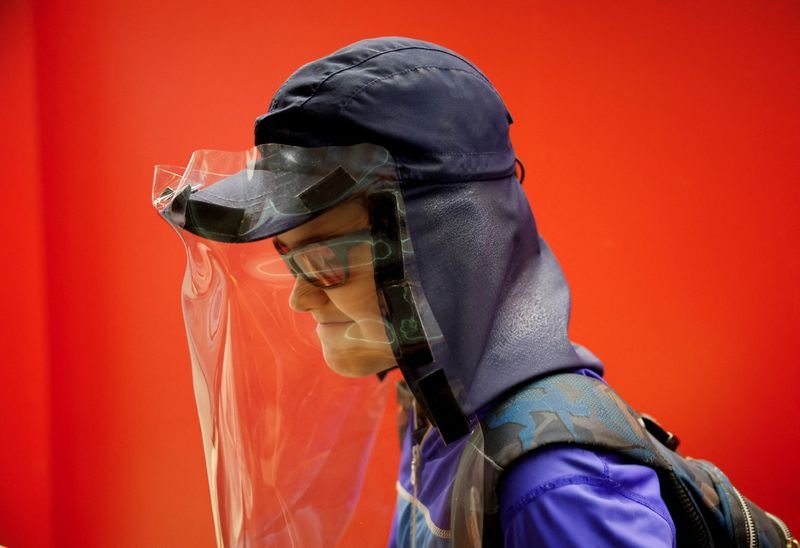A Senate Invoice Would Radically Toughen Vote casting Machine Security
Penetration testing los angeles
Congress is transferring closer to inserting US election technology below a stricter cybersecurity microscope.
Embedded interior this three hundred and sixty five days’s Intelligence Authorization Act, which funds intelligence businesses esteem the CIA, is the Strengthening Election Cybersecurity to Uphold Respect for Elections via Self sufficient Checking out (SECURE IT) Act, which can possibly possibly require penetration making an are trying out of federally licensed vote casting machines and pollscanners, and create a pilot program exploring the feasibility of letting honest researchers probe all scheme of election systems for flaws.
The SECURE IT Act—within the muse launched by US senators Ticket Warner, a Virginia Democrat, and Susan Collins, a Maine Republican—might possibly possibly critically red meat up the protection of key election technology in an period when foreign adversaries live intent on undermining US democracy.
“This rules will empower our researchers to think the kind our adversaries carry out, and verbalize hidden vulnerabilities by attempting to penetrate our systems with the identical instruments and systems worn by monstrous actors,” says Warner, who chairs the Senate Intelligence Committee.
The unusual push for these purposes highlights the truth that even as election issues of security absorb shifted to extra visceral risks such as demise threats in opposition to county clerks, polling-space violence, and AI-fueled disinformation, lawmakers live afraid in regards to the likely for hackers infiltrating vote casting systems, which are belief about critical infrastructure but are lightly regulated when put next to other a need to-absorb industries.
Russia’s interference within the 2016 election shined a highlight on threats to vote casting machines, and no matter foremost improvements, even as a lot as the moment machines can even be inaccurate. Consultants absorb consistently pushed for tighter federal standards and extra honest security audits. The unusual bill attempts to contend with these issues in two ways.
The first provision would codify the US Election Aid Commission’s contemporary addition of penetration making an are trying out to its certification task. (The EAC no longer too long ago overhauled its certification standards, which conceal vote casting machines and pollscanners and which many states require their distributors to fulfill.)
While previous making an are trying out merely verified whether machines contained explicit defensive measures—such as antivirus utility and files encryption—penetration making an are trying out will simulate real-world assaults intended to search out and exploit the machines’ weaknesses, potentially yielding unusual files about critical utility flaws.
“Of us were calling for crucial [penetration] making an are trying out for years for election equipment,” says Edgardo Cortés, a historical Virginia elections commissioner and an adviser to the election security crew at Recent York University’s Brennan Heart for Justice.
The bill’s second provision would require the EAC to experiment with a vulnerability disclosure program for election technology—including systems which are no longer enviornment to federal making an are trying out, such as voter registration databases and election outcomes web sites.
Vulnerability disclosure purposes are in actuality love hunts for civic-minded cyber consultants. Vetted participants, working below sure rules about which of the organizer’s computer systems are gorgeous game, are trying to hack these systems by finding flaws in how they’re designed or configured. They then file any flaws they research to the organizer, every so ceaselessly for a reward.
By allowing a various team of consultants to hunt for bugs in a wide differ of election systems, the Warner–Collins bill might possibly possibly dramatically expand scrutiny of the machinery of US democracy.
The pilot program might possibly possibly possibly be a high-profile test of the connection between election distributors and researchers, who absorb spent decades clashing over how to survey and disclose flaws in vote casting systems. The bill attempts to assuage distributors’ issues by requiring the EAC to vet prospective testers and by prohibiting testers from publicly disclosing any vulnerabilities they obtain for 180 days. (They would additionally want to directly file vulnerabilities to the EAC and the Division of Native land Security.)
Aloof, one provision might possibly possibly spark remark. The bill would require manufacturers to patch or otherwise mitigate critical reported vulnerabilities within 180 days of confirming them. The EAC—which need to overview all adjustments to licensed vote casting utility—would absorb 90 days to approve fixes; any repair no longer popular within that timetable might possibly possibly possibly be “deemed to be licensed,” though the fee might possibly possibly overview it later.
A vendor might possibly possibly no longer be in a disclose to repair a trouble, accumulate that repair popular, and accumulate all of its customers to deploy that repair sooner than the nondisclosure period expires.
“Updates to equipment within the self-discipline can rob many weeks, and modifying equipment shut to an election date is a unhealthy operation,” says Ben Adida, the manager director of the vendor VotingWorks.
Some distributors might possibly possibly additionally chafe on the bill’s appropriate protections for researchers. The rules comprises a “safe harbor” clause that exempts making an are trying out actions from the prohibitions of the Computer Fraud and Abuse Act and the Digital Millennium Copyright Act, and bars distributors from suing researchers below these rules for accidental violations of the program’s phrases.
There is additionally a funding quiz. The SECURE IT Act doesn’t authorize any unusual money for the EAC to drag these purposes.
“I am hoping Congress accounts for the needed funding wanted to enhance the increased tasks the EAC will rob on,” says EAC chair Ben Hovland. “Investments in purposes esteem this are critical to asserting and strengthening the protection of our elections.”
Within the period in-between, the bill’s prospects are unclear. Despite the truth that it passes the Senate, there might possibly be not any longer this sort of thing as a signal of comparable momentum within the House.




